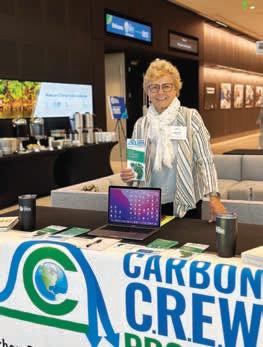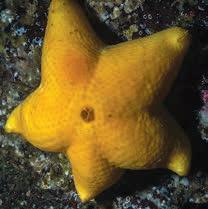
1 minute read
Meet Josephine DeVincenzi, Ed.D.
Naples Resident
Work: retired educator of 38 years in Massachusetts, New Jersey and New York.
Advertisement
Proudest Achievement: Obtaining a doctorate in education to become the best educator possible and the best high school principal that I could be at the age of 35.
Expectations for the Future: Inspiring people to do their best in building a regenerative future for a healthy planet now.
Favorite APP: Climate Action Now.

Favorite websites: CarboCrewProject.org.
Local causes supported: Conservancy of SWFL volunteer as boardwalk naturalist; Audubon Corkscrew National Swamp volunteer; Unitarian Universalist (UUCGN) member.

Most frequented healthy food restaurant: True Food Kitchen.
Where you pick up your copy of Natural Awakenings: Digital version in my inbox—saves paper and transportation/energy distribution.
How I invest in my community: Volunteering and making daily choices to be a good neighbor and friend of the planet.
Favorite inspirational quote: “Never doubt that a small group of thoughtful, committed, citizens can change the world; indeed, it is the only thing that ever has.” ~
Margaret Mead
What I am doing to be the change I want to see in in the world: I’m a cofounder of the Carbon CREW (Carbon Reduction for Earth Wellbeing) Project and I lead CREWs of people to build Personal Climate Action Plans (PCAPs) to commit to the most impactful changes they can make using drawdown strategies.
New Species Found in Deep-Sea Mining Zone

Biologists have discovered more than 5,000 new species of marine life in the Clarion-Clipperton Zone (CCZ), an untouched seabed in the Pacific Ocean spanning nearly 2 million square miles between Hawaii sripfoto/ShutterStock.com and Mexico. Remarkably, approximately 90 percent of the species are entirely new to science. In a paper published in the journal Current Biology, scientists provided the first list of CCZ species, although most of them have not yet been named or described. The checklist focuses on multicellular animals dwelling on the ocean floor.


This research is crucial for assessing the potential consequences of deep-sea mining in the CCZ. The seafloor is rich with cobalt, manganese, nickel, copper and zinc—minerals that are critical for renewable energy technologies. Already, 31 exploration contracts have been awarded to several mining companies. Excavation in the CCZ has not yet begun, and scientists, activists and governments have urged caution until researchers are able to evaluate and better understand the impact that mining would have on this unique marine ecosystem







